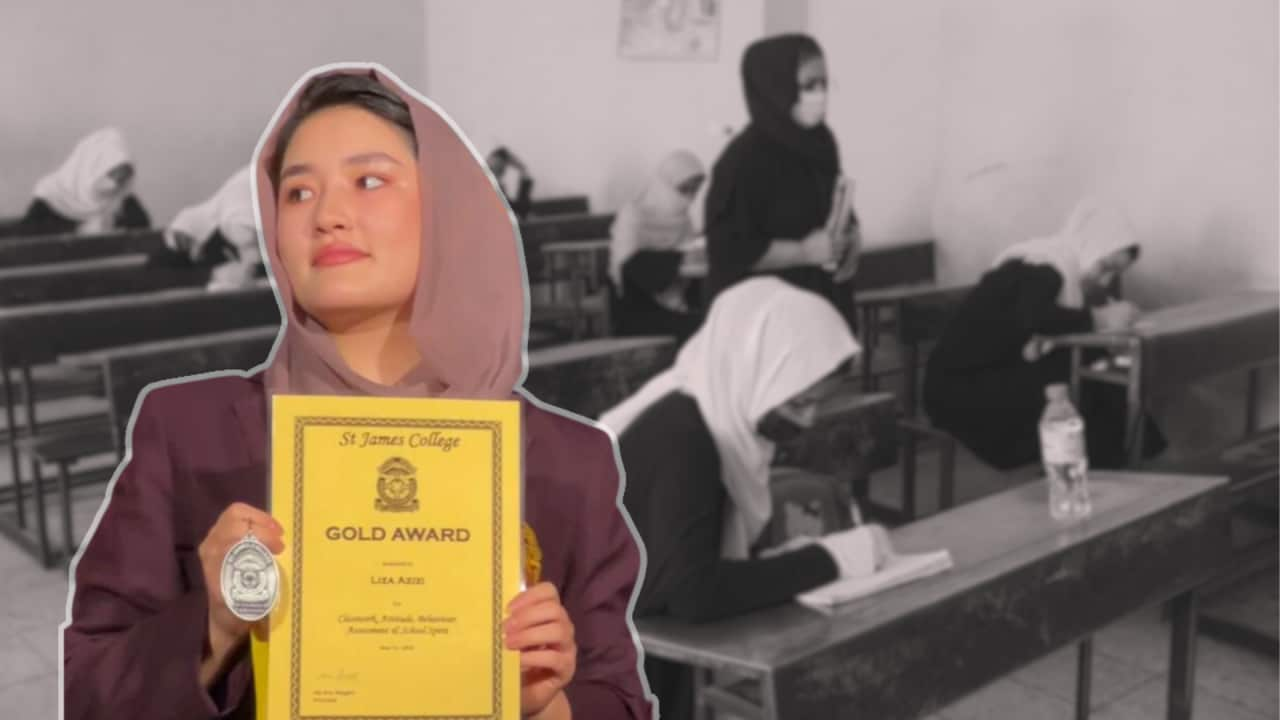Key Points
- Afghanistan's all-female Zohra Orchestra travelled and performed around the world, then the Taliban took over.
- When their freedom to play music was taken away, many fled to Europe, and some settled in Australia.
- The group has been forced to reduce its numbers, with only three musicians settling in Sydney.
Razia Asghari joined Zohra Orchestra when she was just 11 years old.
Her passion for music took her on an unconventional path, travelling and performing with the group around the world.
Together, the all-female group travelled and performed around the world.
When they came to Australia in 2019, Ms Asghari knew that if she had any hope of pursuing music, she .
"In Afghanistan it was very difficult for girls to do music, and my family had decided to pull me out of music school, saying I was getting older," she said.
"I didn't tell my family that once I came here, I would stay. They didn't know."

Zohra Orchestra - an all-female group - was forced apart when the Taliban took over. Source: Supplied
After the takeover, the freedom to play was "completely taken away".
"Fortunately all the students left, they didn't stay in Afghanistan," Ms Asghari said.
"But unfortunately, we're now all over the place, we're not together."
The group has been forced to reduce its numbers, with only three musicians settling in Sydney.
Ms Asghari said playing together brought mixed emotions.
"Sometimes it feels like how it was in Afghanistan and ... it's a happy feeling but alongside that, there's also a feeling of sadness because at that time, there was more of us," she said.
Despite their pain and suffering, many artists still hope to one day return to Afghanistan, she said.
"Only music can help the people of Afghanistan express their pain," she said.
"The amount of pain they have, the amount of hardships they've endured."

The Zohra Orchestra performed in Afghanistan and around the world before the Taliban takeover. Source: Supplied / Jessica Bahr
What is Zohra Orchestra?
Zohra Orchestra - an all-female group - was formed in Afghanistan in 2015 through the Afghanistan National Institute of Music (ANIM) and founder Ahmad Sarmast.
Members came from provinces all across Afghanistan to live in Kabul and study at ANIM.
The group is also known as the Afghan Women's Orchestra and has performed around the world.
When the Taliban took over Afghanistan in 2021, the group was no longer allowed to perform and many instruments were destroyed.
Some members of the orchestra remain in Afghanistan, others fled to Europe, and some - including Ms Asghari - had already moved to Australia.
'Music feeds the soul'
Refugee Week is an annual celebration informing the public about refugees and acknowledging their contributions to Australia. This year's theme is 'Finding Freedom'.
At the event, the musicians were able to freely perform; something they can no longer do back home.
Husna Enayat is another artist whose love for music pushed her into exile.
"Music feeds the soul," she said.
"Our people worship art, they love to listen to music but right now there are difficulties that mean they can't do that."











